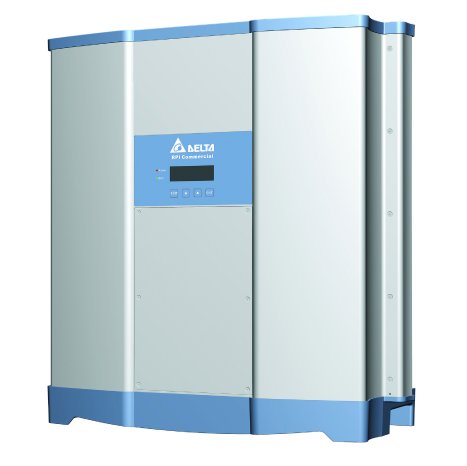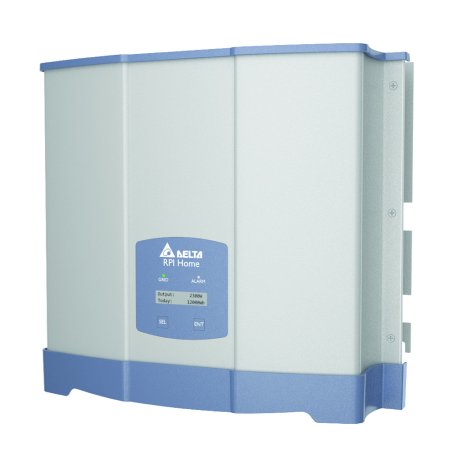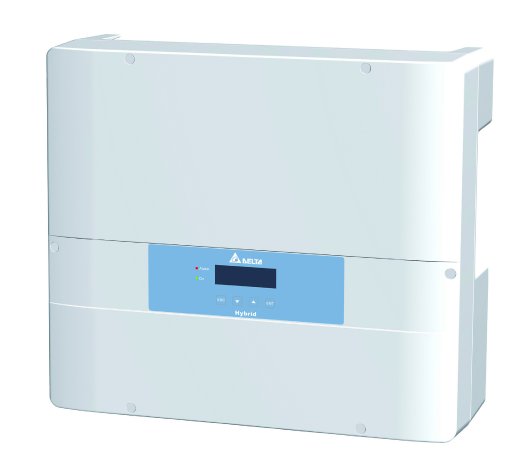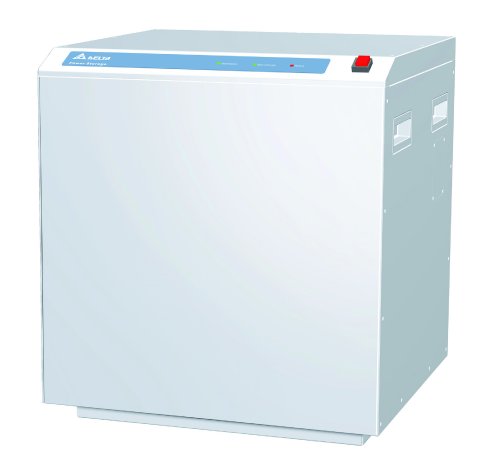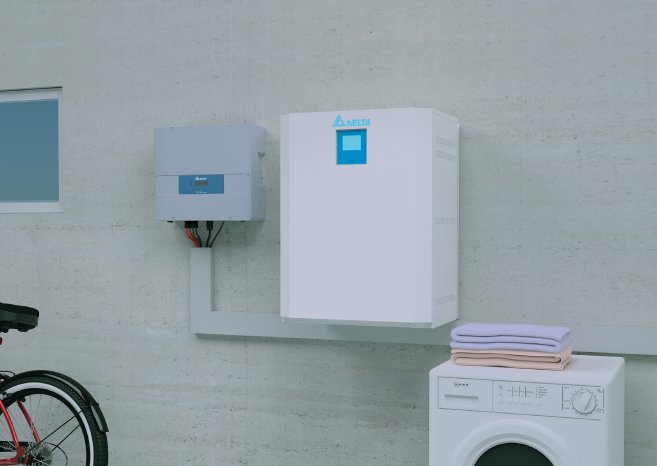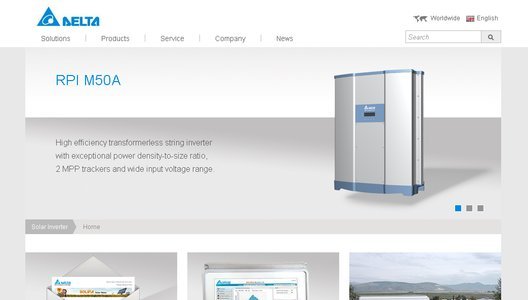Compared to the previous year the electrical energy storage exhibitors showed a strong increase from 250 to 330 and the amount of space for ees had quintupled, demonstrating this important new trend in the solar industry.
Delta presented their own energy storage solutions with two new innovative products; an AC-coupled product known as the Flex E3 and a DC-coupled model named the Hybrid E5. Also on display were the complete line of solar inverters from the 260 W nano micro inverter all the way up to the compact and powerful 50 kVA commercial inverter, as well as the SOLIVIA Monitoring solution. With the introduction of new energy storage systems, powerfully compact high efficiency solar inverters and monitoring, Delta is providing solutions that help everyone extend the use of their solar energy from home users to business owners and meet their energy goals in a smart and eco-friendly way.
Energy Storage Solutions
The Hybrid E5 DC-coupled energy storage system is composed of the RPI E5 hybrid inverter as well as an external battery cabinet equipped with a 7.4 kWh Li-ion battery, a smart meter and smart energy management box. The Hybrid E5 storage system is designed for new PV systems and features a high charging efficiency up to 97%. This is made possible since the E5 inverter can send DC electricity generated by the PV system directly to the battery, without additional power conversion steps or equipment needed.
The Flex E3 is an AC-coupled energy storage system meaning it is installed directly on the AC Line, making it ideal for installation with pre-existing as well as new PV systems and is also compatible with other renewable energy sources such as small wind energy turbines. The unit consists of one compact cabinet designed to be wall mountable or floor standing with all needed equipment and software for operation included. It is available with a variety of system architectures for diverse customer needs with a single system offering storage capacity from 2.9 kWh to 3.7 kWh or with three systems in parallel offering up to 11.0 kWh depending on the selection of lead-acid or Li-ion batteries.
Large Commercial Solutions
The RPI M50A, a 50 kVA transformerless three-phase inverter features the largest output power in the Delta product line, making it an outstanding choice for commercial-scale PV systems. The PV inverter features a very high max. efficiency of 98.6% and exceptional power density-to-size ratio. A wide input voltage range of 200 – 1100 V, coupled with 2 MPP trackers provide maximum flexibility in system design and maximum yield. To further simplify the installation process and provide added cost savings, the M50A can be ordered with integrated and replaceable AC and DC-side SPDs (surge protection devices) as well as integrated string fuses.
Further extending its large commercial product line, Delta demonstrated the compact RPI M30A transformerless three-phase inverter. It features a nominal 30 kVA output but enables maximum power output up to 33 kVA. This feature allows the inverter to provide 10% more power and higher yields when compared to other 30 kVA inverters on the market. The inverter features an excellent power density-to-size ratio and very high max. efficiency of 98.5%. For the system planner, maximum flexibility is ensured thanks to a wide input voltage range of 200 – 1000 V and 2 MPP trackers. Asymmetrical loading (33/67%) is also possible, ensuring maximum yield in large commercial rooftop installations with multiple roof orientations.
Residential Solutions
The H3 is a single-phase inverter with 3 kVA power output and features a high efficiency of 97%. The unit is the right choice for homeowners that are seeking an affordable solar inverter that has all essential functions plus reliable performance to generate clean solar electricity for the home. A wide input voltage range of 125 – 550 V and a single high-speed MPP tracker offer greater system flexibility in small power PV systems with fewer modules.
The inverters feature an innovative heatsink design for cooling which draws the heat away from the inverter through a natural convection process. Because there are no fans required, maintenance costs are reduced and audible noise is greatly reduced.
